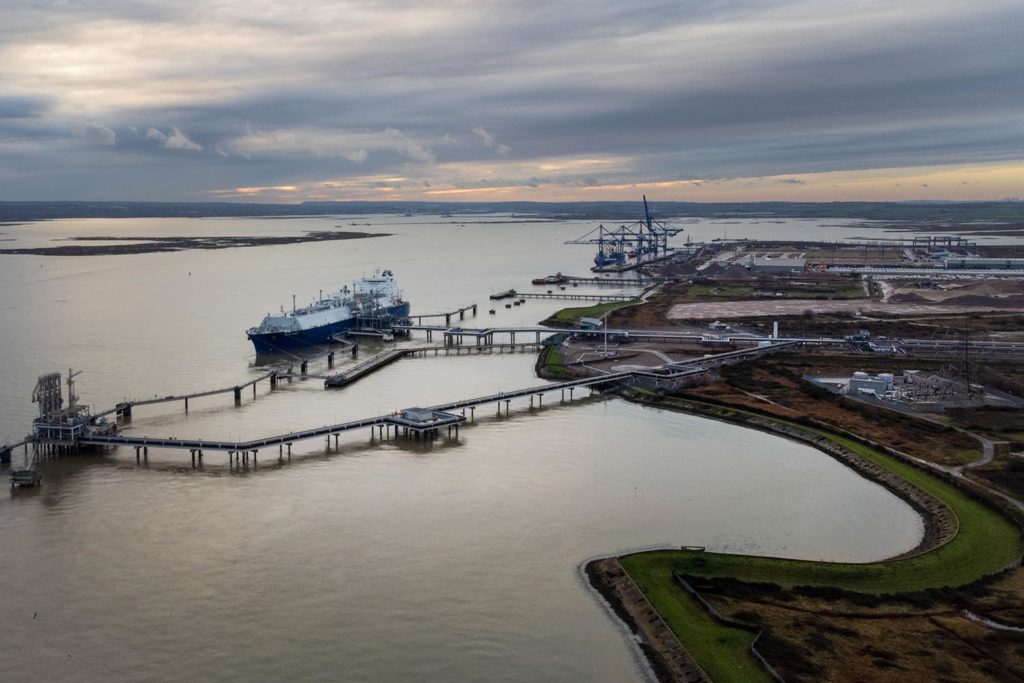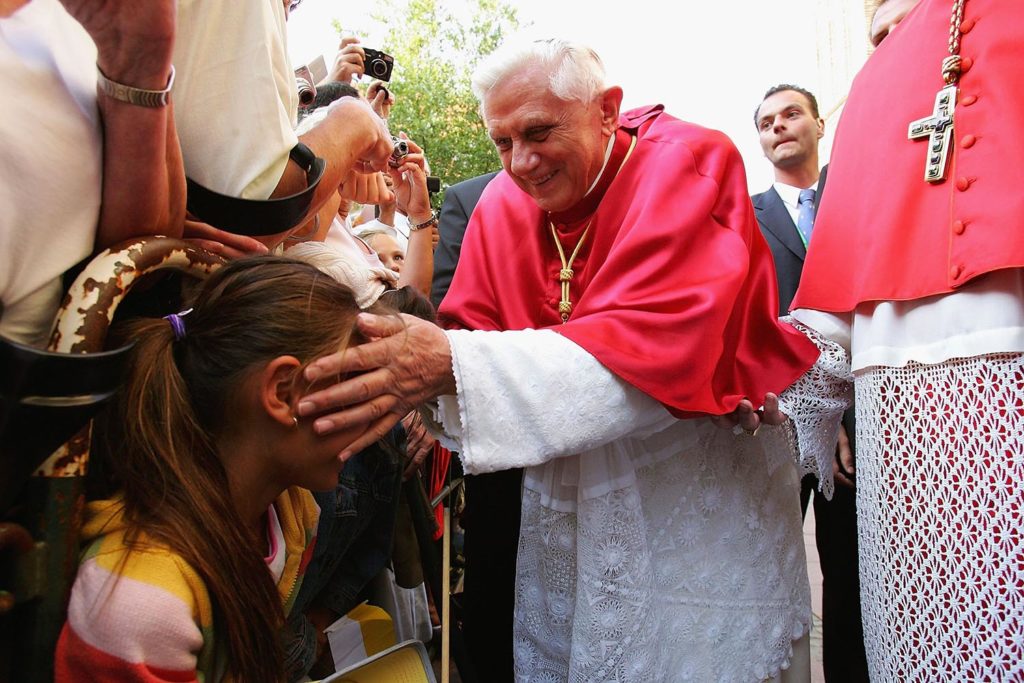What just happened

- A snowstorm collapsed hundreds of tents at a Syrian refugee camp in Aleppo province.
- Adele postponed a forthcoming concert series in Las Vegas because of Covid among her support staff and suppliers.
- Zara Rutherford, 19, became the youngest woman to fly round the world.
What a day, the speaker of the House of Commons said in London on Wednesday. What a week, he might add today. Boris Johnson remains in power despite a smouldering pork pie putsch. Peace hangs by a thread on the border of Russia and Ukraine. For much of the week, Westminster has seemed absurdly self-absorbed as the world order teeters on the brink. And yet the stories are linked – by the price of gas.
It’s inflation, stupid. Outside political capitals the rising cost of living is vastly more pressing than leadership contests, though it will help decide them in the end (see also Wealth below). US consumer price inflation reached 7 per cent last month for the first time in 40 years. Reuters’ Eurozone inflation forecasts for 2022 have risen for seven consecutive months. UK inflation hit a 30-year high of 5.4 per cent in December, and whatever happens elsewhere in the world it is likely to stay high:
- Unlike other European economies, the UK is protecting consumers from spiking wholesale gas prices with a retail price cap that expires on 1 April. Absent dramatic government intervention, household gas prices could then jump by 50 per cent or more.
- Wholesale prices will stay high, too. This is mainly because of soaring Chinese demand being met partly by new pipelines from Siberia but also by shipments of Liquified Natural Gas (LNG). Energy traders can and do turn these shipments around mid-voyage to redirect them towards Europe, but only by paying a premium of up to 25 per cent. The Kayrros LNG Flow Tracker says 102 tankers have unloaded in Europe so far this month – more than twice as many as in the same period last year – and up to 12 have been redirected towards Europe since 17 December.
- The threat of war in Ukraine doesn’t help: as long as Russia keeps an invasion force on standby Germany will not certify the Nord Stream 2 pipeline that could ease Europe’s gas supply bottleneck at a stroke.
There are two gas price scenarios that Johnson and the plotters hoping to dethrone him will be considering.
Scenario 1: the Ukraine crisis drags on, Nord Stream 2 stays shut, the gas supply squeeze remains acute, the 1 April price cap expiry wipes out wage gains across the UK economy and bad-tempered voters hand the Conservatives a brutal rebuke at local elections in May.
Scenario 2: US and Russian diplomats reach an accord this weekend in Geneva, certification of Nord Stream 2 becomes a realistic near-term prospect, gas prices ease and what pain remains in store for UK consumers when the price cap goes becomes manageable for the Treasury.
Which suits Number 10 best? Scenario 1, but only by a hair. It buys Johnson four months, after which the plotters will hope to make him take the blame, and the fall, for voters’ anger. In scenario 2 the auguries for Rishi Sunak in Number 11 are suddenly good. Peace in Ukraine could easily mean war in Downing Street.
Viral shrinkflation
A Twitter thread listing price increases and shrinking product sizes for basic items in UK supermarkets has gone viral, and put the headline 5.4 per cent inflation figure in perspective. Jack Monroe (@BootstrapCook, 371,000 followers) picks out year-on-year price rises of 344 per cent for the cheapest bag of rice, 141 per cent for the cheapest pasta, 169 per cent for canned spaghetti and 196 per cent for a jar of curry sauce. And don’t get her started on shrinkflation. Instead of a 400g pack of mushrooms at 59p she’s looking at 57p for 250g – a 56 per cent per-gram increase. It’s a similar story with apples – smaller but pricier. Monroe’s point is that the cheapest items have gone up fastest in price, while some products aimed at well-off customers haven’t gone up at all: “A high-end store’s ‘Dine In for Two for £10’ has been £10 for as long as I can remember.” The Office for National Statistics reported in December that food and non-alcoholic beverages have been the largest contributors to change in the annualised CPIH inflation rate (which takes account of consumer prices plus housing) since 2008. Monroe claims 15 million people have seen the thread.

Vatican rag
Former Pope Benedict XVI has been accused of letting four Catholic priests accused of child sex abuse remain in post when he was Archbishop of Munich. The ex-pope, now 94 and known as Pope Emeritus, denies failing to act when told about the allegations, but a German law firm commissioned to investigate them obtained minutes of at least one meeting at which they were discussed and he seems to have been present. The firm’s report, released yesterday, covers multiple cases besides those linked to Benedict. It identifies nearly 500 victims in the Munich and Freising areas alone in the period 1945 – 2019. It also criticises the current archbishop of Munich, Cardinal Reinhard Marx, who has already offered Pope Francis his resignation only to have it declined. Something to reconsider?
Connector disconnect
The UK’s business secretary has refused permission for a £1.2 billion interconnector cable from France to Portsmouth that would have been able to supply 5 per cent of British power needs – and would have embroiled the government in a bitter argument about the influence of party donors. The Aquind project was backed by two Russian nationals, Viktor Fedotov and Alexander Temerko, who are both now UK citizens and Conservative party donors. Both are frequently cited in news reports as examples of conduits of Russian money to British politics. It’s true they made their initial fortunes in the Russian energy business, but often missed that they are enemies of – and exiles from – the Putin regime rather than somehow aligned with it. Temerko’s last job in Russia was as vice president of Yukos at a time when its founder, Mikhail Khodorkovsky, was being tried and jailed for daring to challenge Putin’s political supremacy. Permission for the Aquind project has been declined, ostensibly, because it would disrupt downtown Portsmouth. It would be a shame if the UK government took against interconnectors in general, because the country needs them.
Michigan settles
The University of Michigan said this week it will pay $490 million to more than a thousand victims of sexual abuse at the hands of Robert E. Anderson, who worked in the college’s athletic department for over 30 years and molested students during physical examinations. An investigation revealed university staff were made aware of potential misconduct in 1975 and fired Anderson, only to overrule their own decision and reinstate him as a senior physician. Anderson died in 2008 before the abuse was made public. In the last decade over $2 billion has been agreed in payouts to victims of abuse by university staff, among them Larry Nassar ($500 million from Michigan State), who also abused members of the US gymnastics team, and George Tyndall ($1.1 billion), a gynaecologist at the University of Southern California. It’s hard to imagine the Anderson settlement will be the last of its kind.










